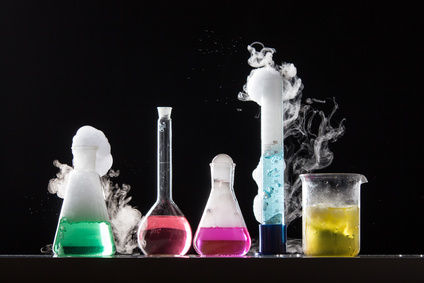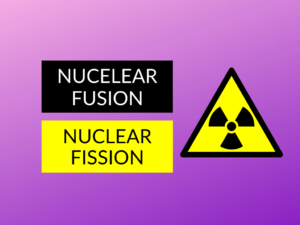During nuclear reactions, only the nucleus is affected. Elements preserve their identity, and the nuclei of atoms remain unchanged during chemical reactions. Nuclei of atoms undergo complete change during nuclear reactions, creating new elements. Here is what you want to know about the Difference Between Nuclear and Chemical Reactions
What is Nuclear Reaction
According to nuclear Science include both physics and chemistry, an activity is semantically considered to be the method within which two nuclei, or a nucleus and an external particle, strike to produce one or more new nuclides. Thus, a natural action must cause a metamorphosis of a minimum of 1 nuclide to a distinct. If a nucleus interacts with another nucleus or particle which they then separate without changing the character of any nuclide, the method is simply stated as a kind of nuclear scattering, rather than a natural action.
Nuclear reactions are processes during which one or more nuclides are produced from the collisions between two atomic nuclei or one atomic nucleus and a fundamental particle. The nuclides produced from nuclear reactions are different from the reacting nuclei (commonly remarked because of the parent nuclei).
What is Chemical Reaction
The chemical reaction may be a process within which one or more substances are transformed into one or more different substances, the products. Substances are either chemical elements. A reaction rearranges the constituent atoms of the reactants to create different substances as products.
Chemical reactions are an integral component of technology, of culture, and indeed of life itself. Burning fuels, smelting iron, making glass and pottery, brewing beer, and making wine and cheese are among many samples of activities incorporating chemical reactions that are known and used for thousands of years. Chemical reactions occur in the geology of Earth, within the atmosphere and oceans, and during a very vast array of complicated processes that occur altogether living systems


Difference Between Nuclear and Chemical Reactions
| Nuclear reactions | Chemical reactions |
|---|---|
| The nuclear reaction happens only inside the nucleus. | The chemical reaction normally occurs outside the nucleus. |
| Balanced | |
| In terms of both mass and energy | In terms of mass only |
| Energy changes | |
| More | Less |
| Reversible | |
| Mostly irreversible. | Can either be reversible or irreversible. |
| Involves | |
| It involeves emmision of aplha,beta,gamma particles | it involves some overlap of the outer orbital electrons of the reactant atoms |
Conclusion
Hence, after examination of the Difference Between Nuclear and Chemical Reactions, we can understand that Nuclear reactions occur in the nucleus of the atom, but chemical reactions are carried out by electrons. Atomic reactions involve the transfer, loss, gain, and sharing of electrons. The nucleus is not involved. The nucleus is decomposed in nuclear reactions; electrons have no part in them.
More Related Readings
Difference Between Stars and Planets
Difference Between Hardware and Software



